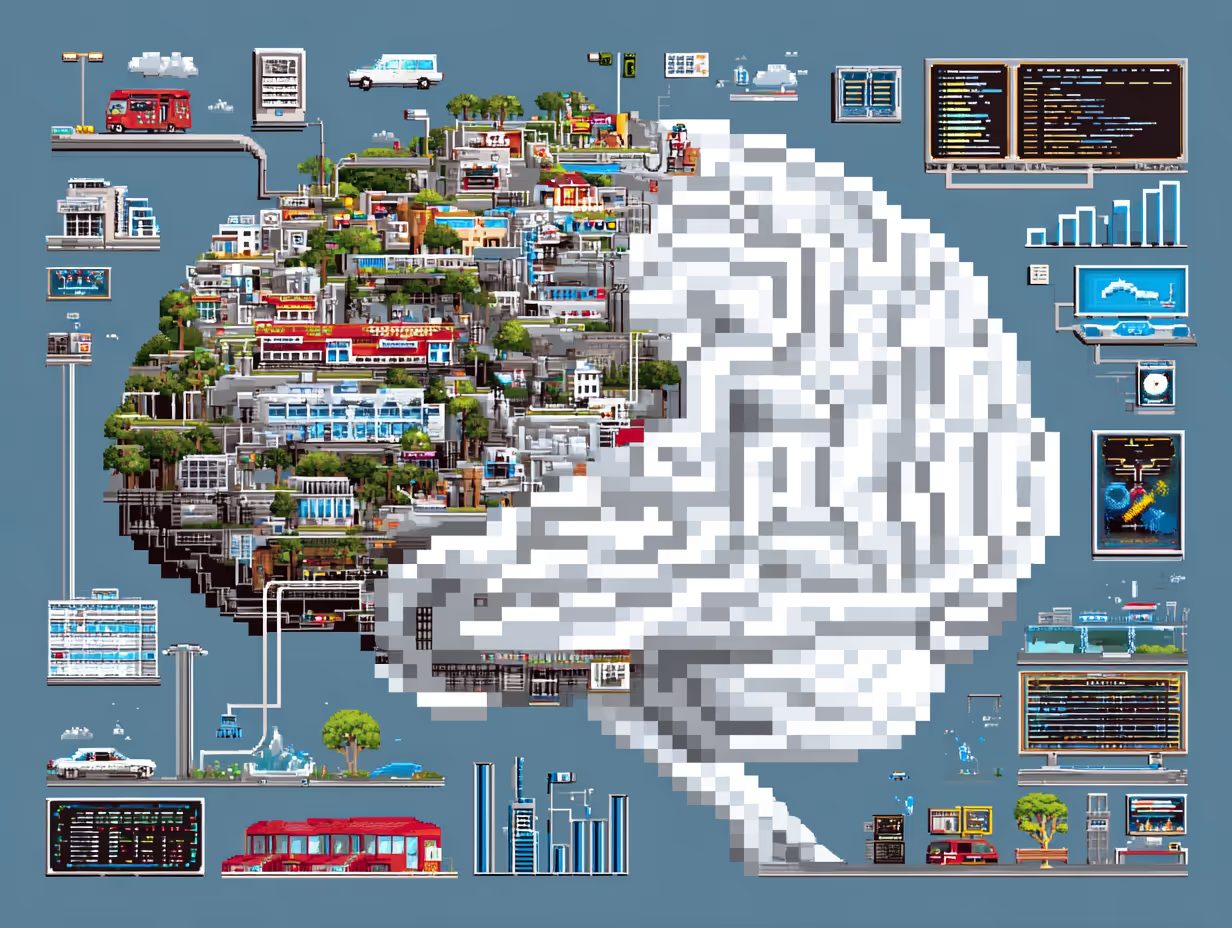In a world where technology is evolving at an unprecedented pace, the concept of Cognitive Operating Systems (COS) is emerging as a game-changer for businesses. As we stand on the brink of a new era in entrepreneurship, it is essential to understand what COS entails and how it can revolutionize the way we operate. The future of business is not just about automation; it’s about creating a seamless integration of human intelligence and artificial intelligence, where the human role evolves into that of a controller, guiding the AI to make informed decisions.
What is a Cognitive Operating System?
A Cognitive Operating System is a sophisticated platform designed to streamline business operations by integrating various technological components into a cohesive unit. Imagine a system that acts as a command center for AI, enabling businesses to operate with a single source of truth. This is not just a theoretical concept; it is the future we are building with NOAN.
The Core Components of a COS
To fully grasp the potential of a Cognitive Operating System, it is crucial to understand its core components. A COS is built on five distinct functionalities:
Why is a COS Necessary?
The traditional business operating structure is often linear and fragmented, leading to inefficiencies and disconnection. In many organizations, knowledge is siloed, making it difficult for AI systems to generate high-quality outputs. A COS addresses these challenges by providing a structured environment where knowledge is centralized and accessible.
The Challenges of Disconnected Knowledge
Disconnected knowledge within a business can lead to poor decision-making and ineffective AI outputs. Here are some of the key issues:
Lack of Context
AI thrives on structured context. When knowledge is scattered across various platforms—like emails, documents, and messaging apps—the AI struggles to understand the underlying reasons behind actions and decisions. This results in shallow insights and, ultimately, poor outcomes.
Broken Feedback Loops
For AI to improve over time, it needs to learn from past decisions. However, when data is stored in disparate systems, the AI cannot effectively close the loop between strategy and results. This leads to stale and contradictory knowledge, which hampers the AI's ability to provide relevant suggestions.
Organizational Blind Spots
Without a shared knowledge base, assumptions go unchallenged, and valuable insights can be lost. AI systems may optimize for local wins without considering the broader impact on the organization, leading to missed opportunities for growth and innovation.
Implementing a Cognitive Operating System
Transitioning to a Cognitive Operating System requires a fundamental rethinking of how businesses operate. It is not merely about adding new technology; it is about reshaping the entire business structure to support automation and AI integration.
Rethinking Business Structures
Current enterprise structures are often chaotic, filled with disconnected documents and fragmented knowledge. To implement a COS effectively, businesses must first address these foundational issues. This means creating a centralized knowledge repository that can serve as the backbone for AI operations.
Starting Small
Interestingly, the first adopters of COS will likely be small teams or individual entrepreneurs. These agile entities can implement COS without the bureaucratic hurdles that larger organizations face. As they begin to leverage AI for their operations, they will set the stage for a new wave of business innovation.
The Future of Business with Cognitive Operating Systems
The future of business is not just about surviving in a competitive landscape; it’s about thriving through intelligent automation. As we move towards a world where one-person teams can manage vast enterprises with the help of AI, the potential for growth and efficiency is limitless.
Empowering Individuals
At the core of this transformation is the empowerment of individuals. With a COS, entrepreneurs will have the tools they need to make informed decisions quickly and effectively. This shift will not only enhance productivity but also foster a culture of innovation and creativity.
Disruption of Traditional Industries
As Cognitive Operating Systems become more prevalent, we can expect to see significant disruptions across various industries. Traditional business models will be challenged, and new opportunities will arise as companies adapt to this new way of operating.
Conclusion
The advent of Cognitive Operating Systems marks a pivotal moment in the evolution of business. By embracing this technology, organizations can streamline their operations, enhance decision-making, and ultimately create a more efficient and effective business environment. The future is bright for those willing to adapt and innovate, and the journey towards a fully automated business landscape is just beginning.
As we look ahead, it is clear that the integration of AI and human intelligence will redefine what it means to run a business. The question is not whether we will adopt Cognitive Operating Systems, but rather how quickly we can embrace this transformative change.
